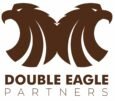- “D” is for dividend payers – including both individual dividend-paying stocks and high dividend-paying ETFs. Dividend payers are traditionally more stable and value-oriented companies, while the dividend-paying ETFs will give us our fixed income (bond) exposure.
- “I” is for international exposure – mainly with developed countries and a focus on Asia Pacific at the present moment. Due to the dual wars in Ukraine and Israel casting a pall over most European markets, I feel better broadening our exposure to Asia Pacific. The U.S. equity bull market is getting a little long in the tooth, and international equity markets have lagged the U.S. for many years now, it appears to be the right time to look for international diversification. Japan is finally coming out of its 25-year slumber and India’s economic growth is very promising, so these are two countries that will be a focus in our international strategy.
- “C” is for commodities – and not just traditional hard commodities like precious metals. In addition to positions in gold and silver, we’ll have some oil (and oil producers) to help protect our portfolios from rising inflation and a declining US Dollar. We are including rare earth minerals and commodity miners in this sector exposure.
- “E” is for “emerging” – and not just emerging markets (that will be a small focus) but more about emerging industries like cloud computing, battery technology, and artificial intelligence. I feel that
AI is going to prove to be a game-changer in the biotech realm, so we will be increasing exposure to the biotech sector as well.
We will continue to use cash strategically in our portfolios. Thanks to the higher short-term yields created by the Federal Reserve as they try to control inflation in our economy, we will continue to use U.S. Treasury Bills currently yielding 5.25% as our “cash” position.
I look forward to another wonderful year as “partners” in our wealth management journey together. As always, if you have any comments, questions, or concerns, please do not hesitate to give me a call.
